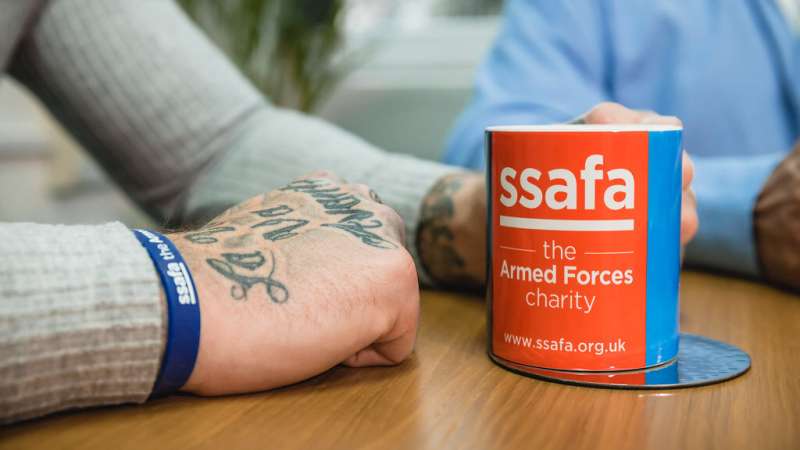
New research published this week by the Armed Forces charity SSAFA conducted by the University of Bath highlights the positive impact of wellbeing interventions for veterans.
It finds that beneficiaries’ interactions with SSAFA volunteers and employees during the COVID-19 pandemic were very positive, with services received being highly valued and meeting beneficiaries’ needs.
While SSAFA continued to operate throughout the pandemic, like so many charities across the country, service delivery had to adapt to government restrictions, with many services changing from face-to-face to online delivery. This highlighted the need for SSAFA to develop a deeper understanding of how beneficiaries and volunteers engage with digital technology.
The 57 participants which included SSAFA beneficiaries, volunteers and employees were all based in England and had been part of the “Keep Calm, Get Connected and Carry On project.” The research was part of a grant funded by the Department for Digital, Culture, Media & Sport (DCMS).
Beneficiaries interviewed said that they had had a unique and heightened experience of loneliness and social isolation during COVID-19 due to their Armed Forces background and training, with pre-existing loneliness, social isolation and mental health difficulties being perpetuated and amplified throughout the pandemic.
Lieutenant-General Sir Andrew Gregory, KBE, CB, DL said: “The COVID-19 pandemic that struck in 2020 and the consequent restrictions placed on society heightened trends and exacerbated symptoms amongst SSAFA’s beneficiaries. In 2018, our research report “The Nation’s Duty’ found that 64% of the 1,100 SSAFA beneficiaries then surveyed reported feeling lonely or isolated since leaving the Armed Forces. Knowing that fact, the impact of a series of sustained national lockdowns on our beneficiaries, and indeed on the work and wellbeing of SSAFA’s 4,700 volunteers, was of significant concern to us as a charity and service provider.
“This insightful qualitative study, undertaken by a research team from the University of Bath provides further examples of the challenges being faced. Having interviewed a small sample—26 of the 79,540 beneficiaries that we assisted in 2020, it is not intended to be seen as representative of all SSAFA beneficiaries. However, the themes and experiences gives a starting point for further exploration, evaluation and discussion.
“We welcome the recognition and encouragement to continue our existing service delivery practices and strategies. We want to build on the success of our existing partnerships with other organizations to ensure we continue to provide tailored, personalized support to those in the Armed Forces community who need us the most.”
Source: Read Full Article
